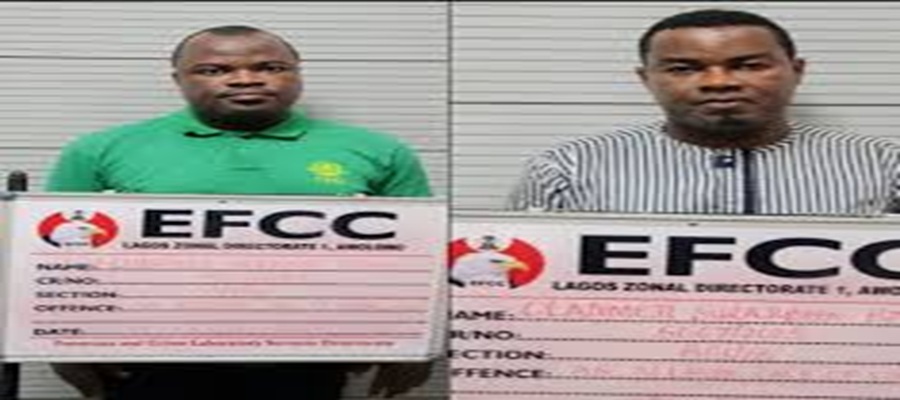News
ICT Stakeholders List Ways to Creating Billion Dollar Firms in Nigeria

In a bid aimed at supporting the government and leaders in technology in their efforts at driving the change needed to be seen in the Nigerian technology industry, various key Stakeholders in the nation’s ICT sector recently met in Abuja and identified interventions required to create billion dollar companies in Nigeria.
At the first Digital Africa Leadership Series, with the theme: “Generating Laws and Policies for Creating Local $Billion Tech Companies – How do we get there?,” which held on the 20th of April, 2017 at the Shehu Musa Yar’adua Centre, Abuja, participants which included the Honourable Minister of Communications Technology, Barrister Adebayo Shittu; the Director General of the National Information Technology Development Agency, NITDA, Dr. Isa Ali Pantami; Executive Vice Chairman of the Nigerian Communications Commission, NCC, Prof. Umar Garba Danbatta, members of the civil society organisations, entrepreneurs, government functionaries and CEOs of top ICT firms came up with far-reaching decisions.
In a communiqué at the end of the one-day event, participants noted that there is an established correlation between the number of $billion tech companies in a country and the size and level of development of their economy. Therefore, there is a need for the country to consciously think of the policies and legal framework needed to build the Nigerian Tech companies that would achieve multi $billion status. This also means that Nigerian companies should always see the whole world as its market.
Stakeholders at the event noted that Nigeria with a population of about 200million people is supposed to play a leading role in Africa, especially in the innovation and diffusion of ICTs. Whereas this is the case, other countries like Kenya and Rwanda seem to be bettering Nigeria’s efforts. It was, therefore, agreed that greater effort should be put in the country to ensure that she meticulously executes her National ICT policies or Road Map.
Participants agreed that the Minister and the leadership of other ICT agencies should inspire and drive a new vision for Nigeria’s ICT industry through their public engagement and use of the social media.
It noted that the country has developed several ICT strategy documents, roadmaps, national ICT blueprints and master-plans, and bemoaned the seeming confusion as to which is the driving document for the country. It therefore, called for a need for harmonisation and/or communication of the right document, as stakeholders desire to know which one of them is the driving plan for the industry.
The stakeholders noted the assurance of the Honourable Minister that the Federal Executive Council will soon approve the National ICT Roadmap document as well as the National e-Governance Masterplan document. Accordingly, they advised that when approved, the same documents should be widely circulated.
Stakeholders noted the existence of Local Content Office under the National Information Technology Development Agency and the Federal Ministry of Communications Technology and advocated for a target percentage of local ICT contracts to be awarded to Nigerian businesses, advising that where no Nigerian company is qualified, such Nigerian company should understudy the expatriate company in order to ensure transfer of knowledge within a specified period.
The Stakeholders further noted the inadequacy of the current intellectual property and copyright protection laws in Nigeria and advocated for the laws to be updated to provide sufficient protection for Nigerian businesses.
It was noted that the quality of ICT education from Primary, Secondary and especially the tertiary levels are weak when compared to what is obtainable from other parts of the world. It is, therefore, important for the government to create the enabling policies, laws and infrastructural environment needed to greatly enhance the quality of ICT education in Nigeria, adding that Government’s direct intervention to hasten the size and variety of capacity in ICT for the country is highly desirable.
Participants at the one-day forum noted that despite the two decades of efforts at enhancing relative ICT infrastructure in the country with regards to electricity, telecommunications network and computer hardware availability, the level, size, number and quality of infrastructure in the country are still insufficient, thereby impinging on the ability of the country to properly participate in the coming 4th Industrial Revolution. They, therefore, advised that the government must take urgent action to provide the country with a befitting infrastructure in readiness for the 4th Industrial Revolution.
The forum also noted that many infrastructural projects in the country are poorly supervised and built with substandard materials. Therefore, Government should ensure that an effective quality system is introduced and that projects are undertaken to specification, cost and agreed timeline.
It further noted that there is a need to ensure that various ICT policies from the different ICT Regulatory Agencies in the country are appropriately communicated to all relevant stakeholders such as trade unions, individuals, organisations and sectoral regulators.
Stakeholders observed and noted that most organisations that are calling themselves Incubators are actually playing the role of Accelerators and that there is a dearth of knowledge in Incubation Hubs Management, and therefore, advised that the Government should create special facilities for training Nigerians on the development and running of Incubation Hubs.
With regards to investment in all sectors of ICT, it was noted that if the enabling environment is there as well as the right kind of incentives, not just local investors but even international investors and capital will move in. Similarly, it was noted that in order to enhance capacity for the industry, Government should encourage organisations that train people for various ICT skills with incentives such as Tax Breaks. This according to the forum, will encourage numerous organisations to train graduates bearing in mind that they will only be able to keep a few while the rest will go into the industry to enhance capacity.
The Communiqué commended the Minister on the plan for the proposed transformation of NIPOST to amongst other things, provide electronic banking services, e-commerce services, banking and finance services, transportation and logistics services, property development services, etc. It noted with excitement that the NIPOST reform package will soon be launched and therefore, encouraged the Minister to see to the successful and timely implementation of same.
The forum noted that in order for the Government to catalyse the Nigerian ICT industry, and because of the general recession in the country, government should in addition to setting up the necessary enabling environment, provide funding for startup businesses, and provide the needed funding for entrepreneurs under an appropriate arrangement without having to be in business itself.
The stakeholders acknowledged with commendation, the fact that the Federal Government has decided to build a National ICT Park. They suggested that in addition to this, a minimum of 30 Techshops should be built across the country. The Techshops will provide implements or building materials, i.e. both process and product technologies with which to fabricate whatever innovative ideas Nigerians may have using all possible fabrication materials like iron, steel, wood, plastics, etc. In other words, the Techshops will provide centres with all the necessary building tools for the trialling and fabrication of different innovative ideas.
News
EFCC Arraigns Two FSDH Bank Officials Over $307k, €50k Fraud


EFCC
News
AfDB Supports Francophone Africa Start-ups with €6.5M

The African Development Bank Group last week approved an investment of €6.5 million in the Saviu II fund in order to support technology start-ups through their seed phase and first institutional fundraising, mainly in French-speaking Central and West Africa.

The Bank will invest €4.5 million as equity and €2 million as a first-loss hedging tranche on behalf of the European Commission, under the Boost Africa Programme.
This participation of the Bank Group will enable the Saviu II fund to give priority to companies with a strong technological or digital component.
Saviu II, the second investment vehicle of Saviu Partners, plans to invest between €500,000 and €3 million in about 20 technology or technology-oriented business-to-business start-ups in the seed phase or carrying out first institutional fundraising.
The Saviu II venture capital fund aims to make at least 60% of its commitments in the French-speaking countries of West and Central Africa: Côte d ‘Ivoire, Cameroon, Benin, Senegal, Togo, Burkina Faso and Mali.
The fund can also co-invest in promising technology companies in East Africa that have a strong team and business model, and whose strategy includes entering the market in French-speaking West African countries and establishing a strong presence there.
In addition, the fund will devote a dedicated envelope to pre-seed investments, focusing on minority equity investments, usually in co-investment with studios, incubators or other ecosystem partners.
News
Nigeria Inks $1.3bn MoU with AFC for Alumina Refinery, Mining Push

Nigerian Government has signed a $1.3 billion Memorandum of Understanding (MoU) with Africa Finance Corporation (AFC) via the Solid Minerals Development Fund (SMDF) to fund an alumina refinery, national geoscience mapping, and a strategic investment vehicle for mining growth.

Special Assistant to the Minister of Solid Minerals Development, Segun Tomori, said the refinery will process one million tonnes of bauxite yearly using a modern Bayer process, powered by an on-site gas-fired cogeneration plant.
Minister Dele Alake called it a transformative milestone boosting GDP, aligning with reforms that improve investment climate, regulations, and licensing to attract private capital. He directed agencies to fast-track permits.
The 20-year project at 95% utilization eyes 19 million tonnes total output, $1.2 billion annual GDP addition, $25 billion economic impact, and $8 billion forex earnings, per feasibility studies.
SMDF Executive Secretary Fatima Shinkafi termed it the agency’s biggest funding deal, supporting value-addition policy.
The partnership extends to geoscience mapping for mineral data, de-risking exploration, and a joint vehicle for mining assets.
Permanent Secretary Engr. Farouk Yabo praised the reforms. Shinkafi signed for government; AFC’s Franklin Edochie for the corporation, witnessed by AFC CEO Samaila Zubairu.
Tomori positioned it as Nigeria’s largest private mining investment and FDI magnet.

 Telecom3 days ago
Telecom3 days agoSunil Bharti Mittal Conferred GSMA Lifetime Achievement Award for Transforming Global Telecommunications

 Telecom3 days ago
Telecom3 days agoWhy Digital Trust Matters: Secure, Responsible AI for African SMEs?

 E-Business3 days ago
E-Business3 days agoJumia Tech Week 2026 Begins with Tech Deals on Smartphones, Electronics, and Everyday Technology

 General News3 days ago
General News3 days agoKrishnan Exits Africa Data Centre to Embark on Professional Chapter

 E-Financial2 days ago
E-Financial2 days agoNRS Targets N40trillion in Tax, Royalty Revenue in 2026

 News3 days ago
News3 days agoAfDB Supports Francophone Africa Start-ups with €6.5M

 Telecom3 days ago
Telecom3 days agoHouse Probes Fintech Regulation via Public Hearing on New Commission Bill

 E-Business3 days ago
E-Business3 days agoHouse Queries NDIC: ₦5m Max Payout for Failed Bank Depositors












